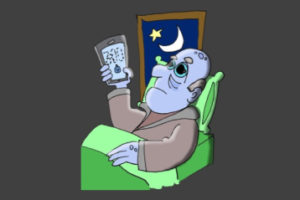
New drug inhibits cancer cell growth
A new compound starves the growth of cancer cells. Future anti-tumor drug for the future likely.
 When should you get critical illness insurance? The absolute best time is exactly six months before you are going to be diagnosed with cancer.
When should you get critical illness insurance? The absolute best time is exactly six months before you are going to be diagnosed with cancer.
When should you apply? Specifically four to six months before you have a heart attack or stroke. Because that way, you will only pay premiums for a few month. Then you’ll be eligible for that lump-sum cash payment from the insurance company.
Undoubtedly the crystal ball you’ll use to predict exactly when those things will happen is probably out for repair. Therefore you will have to keep reading because we can’t predict the specific best time for you. But we can share valuable insights that will help you decide when is the best time for you.
 Insurance companies generally will sell critical illness insurance prior to you turning age 30. So why did we pick age 30 as a starting point.
Insurance companies generally will sell critical illness insurance prior to you turning age 30. So why did we pick age 30 as a starting point.
Firstly, this is just a suggested starting point. However, most critical illness insurance policies are purchased to individuals between ages 35 and 55. That is actually the best time. Specifically it is when insurance is most affordable. Secondly, it is when you are most likely to meet any required health qualifications.
Yes. Most people tend to plan for risks they will face over the next 10 years. Undoubtedly, in your 30s and 40s your risk of being diagnosed with cancer is greater than your risk of a heart attack or stroke.
Likewise, you likely have other financial priorities. Thus, we suggest considering both cancer-only insurance as well as a comprehensive critical illness insurance plan.
A cancer-only insurance will generally cost one-third to one-fourth as much at these ages. Use the cost calculator on this page to get an instant estimate for $10,000 of cancer only insurance coverage.
 Our suggestion is to click the FREE QUOTE button on the advertisement. See rates for both options directly from an insurance company.
Our suggestion is to click the FREE QUOTE button on the advertisement. See rates for both options directly from an insurance company.
See the probability of a cancer diagnosis at different ages.
 Because at virtually every age prior to 70 an adult is far more likely to be diagnosed with a critical illness than to die.
Because at virtually every age prior to 70 an adult is far more likely to be diagnosed with a critical illness than to die.
We clearly are not against life insurance. But if you are going to chose one over the other, here is important information. The Association will post much more on our website.
A male adult has a far greater probability of having a critical illness event prior to age 60. There is a 28 percent likelihood. He has only a 14 percent probability of death. And only a 13 percent probability of a disability claim.
Similarly women have the same; a greater risk of being diagnosed with a critical illness that being disabled or dying prior to age 70.
In England and Canada, people getting a mortgage are encouraged to buy critical illness insurance. Surprisingly in the U.S. the old-world thinking focuses on life insurance.
But, as we have shown, the risk of being diagnosed with cancer is great. So is the likelihood that you will survive.
Consequently you will need to take days, weeks or months off for treatment and recovery. Thus the Association recommends considering either cancer-only insurance or critical illness insurance to cover the gap in income.
We generally recommend an amount equal to between 6 and 18 months of mortgage payments. That will enable you to focus on recovering instead of worrying about paying bills.
Learn more about cancer-insurance. Use the cost calculator to see what $10,000 of cancer insurance might cost you.
 The following comes from Jesse Slome, director of our sister organization, the American Association for Long-Term Care Insurance.
The following comes from Jesse Slome, director of our sister organization, the American Association for Long-Term Care Insurance.
Generally, long-term care planning should start in your mid-50s. Equally, it should take place prior to age 65.
Generally one has other pressing financial obligations prior to age 55. Similarly, at age 65 something important happens that can impact your ability to health-qualify for LTC insurance.
At age 65, most Americans qualify for Medicare health coverage. Subsequently they take advantage of the many health screens and preventative health check-ups covered by Medicare.
Thus, many healthy conditions are uncovered that can make it difficult, costly or impossible to meet the long-term care insurance health qualifications.
Firstly your mailbox will tell you when. Generally about nine months prior to turning age 65, you will start receiving solicitations from insurance companies and insurance agents.
When should you start to seriously weight your options? Generally about three months before turning age 65. Basically, at age 65 you have the greatest available options and unquestionably that works in your favor.
You can buy over the phone or Internet. For those who prefer to work with a local Medicare insurance agent, consider using the free online directory offered by the American Association for Medicare Supplement Insurance.

A new compound starves the growth of cancer cells. Future anti-tumor drug for the future likely.

Better cardiovascular health in midlife can reduce dementia risk later in life.

Adults with the healthiest sleep patterns had a 42 percent lower risk of heart failure.

The Association advocates for the importance of planning and supports insurance professionals who market critical illness and cancer insurance.
Thank you for your interested in critical illness insurance. You are about to leave our site and be redirected to Unified Life Insurance Company’s website where you can learn more and apply online.
Your age, sex and use of tobacco helps to determine your estimated rate for this insurance coverage. We want to provide as accurate a number as possible.